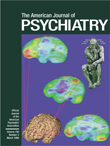Drs. Michels Reply
To the Editor: We appreciate Dr. Krahn’s close reading and thoughtful comments.
The medical consultants believed that the patient’s coagulopathy was consistent with his account of a self-administered overdose of warfarin. In view of the 6-year interval since his last thrombosis and the absence of physical findings, the consultants recommended discontinuing the anticoagulation, which was done.
The possibility of a factitious disorder is interesting. The treating staff felt that his depressive syndrome, his psychodiagnostic profile, his improvement with antidepressant medication, and perhaps most striking, his postdischarge postcard would argue against this, but of course it is always possible that they were “taken in.” Perhaps more important, the diagnosis of factitious disorder describes a behavior that is always associated with serious character pathology and related psychodynamics. The treating staff, and our report, focused on these aspects of the history. As we stated, “his character pathology [became] even more apparent,” and “[h]e managed to extract more inpatient treatment from the system than the vast majority of patients with this level of pathology” (p. 1601). Whether the specific behaviors that resulted from his underlying psychopathology and psychodynamics were conscious and manipulative, as the diagnosis of factitious disorder suggests, or unconscious enactments, as the staff believed, is less important when their psychodynamic origins are so primitive. From a clinical perspective, it is more important that the staff be able to tolerate, contain, and respond appropriately to them.



